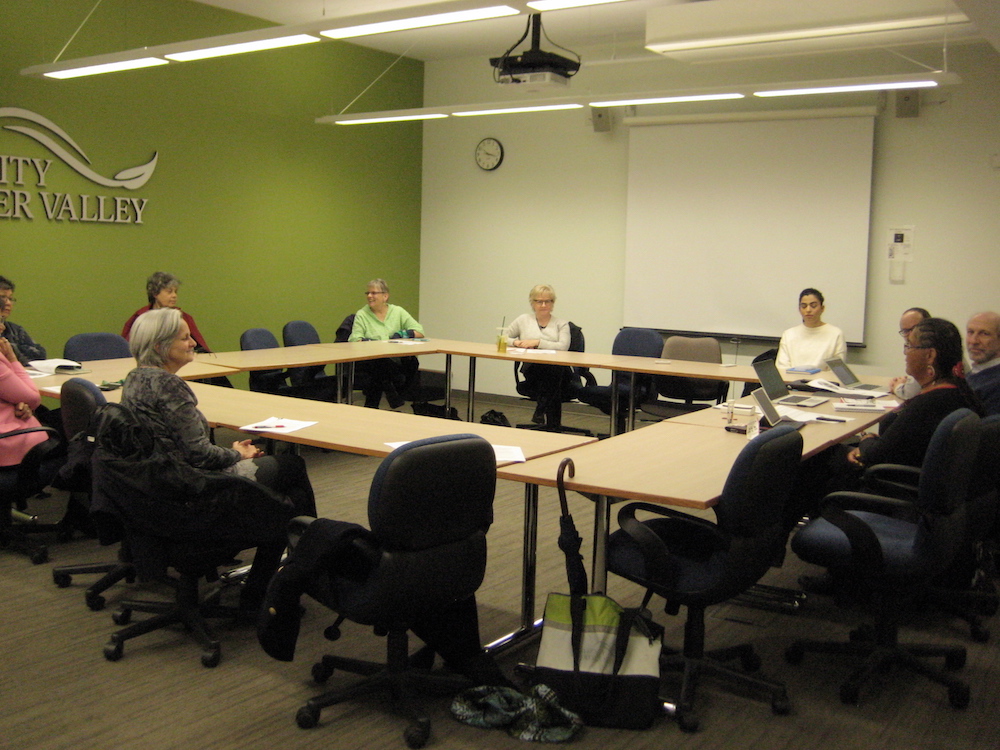After three years of planning, UFV has released a draft of their plan for indigenization at UFV. The indigenization project has been in the works for nearly 20 years now, and is one of UFV’s responses to the Calls to Action of Canada’s Truth and Reconciliation Commission.
The plan outlines a series of recommendations for the direction of UFV’s indigenization work. It concludes that while there are many activities and initiatives ongoing, more needs to be done. Specifically a less hierarchical, more Indigenous organization structure is recommended, as well as hiring more Indigenous staff and increasing communication and coordination across the university.
The specific terms of the new policy are not yet set in stone, and it was presented for feedback at two meetings at Chilliwack and Abbotsford campus last week.
The meeting was presided over by senior advisor on Indigenous affairs, Shirley Hardman, who was a major contributor in crafting UFV’s new indigenization objectives. Other members of the planning committee including Vice-Provost Peter Geller, Jacqueline Nolte, and Sylvie Murray were also present. Several community members were in attendance, including one student, First Nations community members, and UFV faculty not involved with the planning committee.
Attendees at the meeting raised a number of comments on the indigenization plan. There was some discussion over the term “decolonization,” despite that word not being used in the official release. Several commenters felt that “decolonization” is too negative a term, and carries an element of blame for past injustices, which would interfere with healthy and constructive dialogue.
There was also discussion of what non-Indigenous people can contribute. One First Nations commenter said that among the Indigenous community that they themselves have had to do all the hard work in terms of education and advocacy, and that non-Indigenous people ought to take a more proactive role in the reconciliation process. This led to a discussion of what makes a good ally.
Another First Nations commenter noted that even though the legacy of the residential schools and other forms of oppression continue to haunt the Indigenous community, much has changed over the years, and changes over the past 10 years especially have been overwhelmingly positive.
The commenter said that university events such as the Witness Blanket ceremony and the place names tour last year have also been helpful. Exposure of students to local Indigenous culture was one recommendation from the discussion, such as familiarizing students to a few words of Halq’eméylem, such as the words for “hello,” or “thank you.” UFV’s school motto, “Iyaqáwtxw,” was cited as a good example of this, since its meaning, “house of transformation,” can refer not only to the process of education, but also to the transformation that indigenization intends to achieve.
During the discussion, questions were raised about how the Chandigarh campus and its staff and students would fit into the indigenization plan, since many aspects of indigenization and the issues that led to it do not apply there, and what would happen when students from Chandigarh come to the Fraser Valley without the indigenized educational background that is increasingly expected of students in B.C. Commenters also pointed out that the past and present abuses of the First Nations are an uncomfortable subject for many, and not everyone is emotionally ready to grapple with this legacy and the process of overcoming it in an up-front manner.
UFV’s new indigenization plan is neither the first step in the process nor the last, and it remains open to review and revision at this time. One commenter stated that the process is just as important as the destination, and the process will likely never be complete. In any event, our house of transformation will likely remain just that.
Those who missed the meetings and are interested in the subject can read the official report and are asked to provide feedback via email at indigenizing@ufv.ca.
Image: The Cascade


